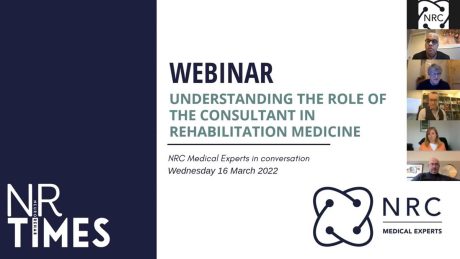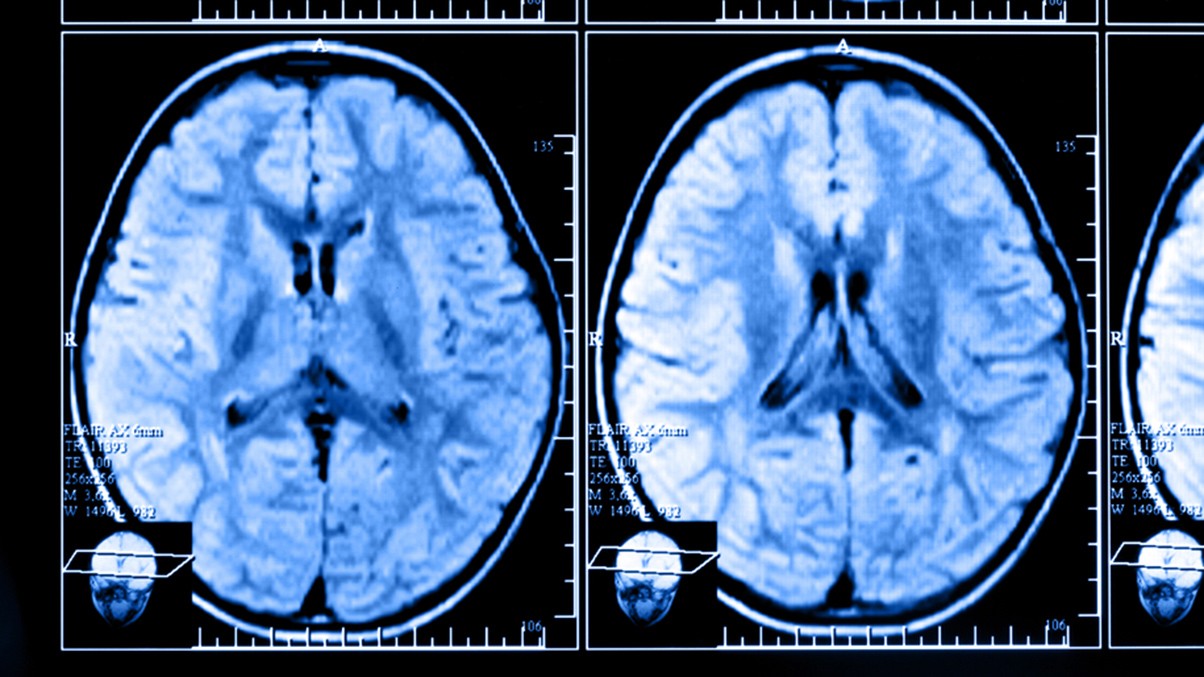Partner Ben Townsend appeared as part of an expert panel roundtable discussion hosted by NRC Medical Experts on 16 March 2022. The online webinar and interactive Q&A addressed case managers, solicitors and health and care sector workers on the subject of rehabilitation consultants and their role on a serious injury case team.
In the session, hosted by NRC founder Dr Edmund Bonikowski, Ben was joined by medical expert Dr Julian Harriss, rehabilitation medicine consultant Dr Inam Hai, and psychologist and senior case manager Anna Watkiss.
The webinar is available to view in full below.
What is a rehabilitation consultant?
Recovery following a brain or spinal injury is a long-term process. Acting as part of and together with a case team, a rehabilitation consultant focuses on optimising recovery following severe injuries and improving long-term function, helping the individual participate in society beyond base-level healthcare. Rehabilitation consultants act as generalists: before higher specialist training in rehabilitation medicine, they will have completed foundation training and core level training in a chosen discipline. The average medical expert has been a consultant for five-to-ten years and been around the subject for 25 years.
Avoiding a single spec, the rehabilitation consultant formulates a realistic rehabilitation plan for each individual they deal with. Their responsibilities include but are not limited to:
- Identifying and setting priorities within a rehabilitation plan
- Diagnosing and managing medical problems in a rehabilitation context
- Working in any setting, across organisational boundaries and in collaboration with other specialists
- Making and justifying decisions based on clinical, ethical, legal and other factors
Patients will sometimes receive a rehabilitation prescription at the acute stage. Ben noted during the webinar that in theory a prescription can be extremely useful and is referred to when available, but in practice they are rarely produced. Inam has observed that prescriptions that are meant to ‘follow’ patients through the health and care system can be lost due to lack of resources.
Rehabilitation consultants as part of a legal claim
Ben noted that as part of the legal process in a serious injury, rehabilitation consultants can take two different roles. The first is that of an expert, providing evidence to the court if the case goes to trial. The second is integrating the rehabilitation expert as part of the team around the client together with other professionals.
Addressing the relative numbers of instructions from claimants and defendants respectively, the panel unanimously agreed that the central role of the expert consultant is providing an independent view for the court. Julian said that he will in each case provide an accurate and impartial report, as it would be obvious if he were doing anything else. Ben revealed that the split is less relevant if it favours claimants, as they are more likely on average to instruct experts than defendants are.
In response to an audience question regarding whether to have a medico-legal expert or a rehabilitation consultant as part of the treating team, Ben said it is most helpful to keep the two roles separated because, ideally, the rehabilitation consultant will focus solely on the patient’s care, rather than also having to worry about reporting to the court. He felt that it is helpful to have two consultants if they are available, though this may be difficult because of the limited number of rehabilitation consultants available.
Scarcity of resources
Despite the essential services that a rehabilitation consultant can provide, the UK has proportionally one of the lowest numbers of rehabilitation doctors in the developed world: fewer than 200 are currently working.
Ben and the panel concurred that many patients who undergo major brain or spinal trauma never receive input and treatment from a rehabilitation consultant. Many will survive a catastrophic injury and never have contact with a rehabilitation expert. Anna shared that during her work as a senior case manager, she has similarly seen many patients never receive this as part of their care. Several of the speakers agreed that the NHS is attempting to address this issue, but this is a complex problem to address.
Guidelines published by the National Institute for Health and Care Excellence (NICE) in January 2022 noted that a recent improvement in survival rates for serious injury patients has led to increased need for rehabilitation. The Covid-19 pandemic has made a huge additional impact as many have developed long-term chronic problems as a result.
Conclusions
The small number of rehabilitation consultants in the UK has contributed to their services often being overlooked, but they can play an essential role as part of a patient care team. Turning to the question of whether patient services are improving, the panel noted that lack of resources and long waiting times are making progress difficult. Rehabilitation consultants offer long-term care to patients in the community, and can provide an invaluable service when available.
Life beyond injury
We have teamed up with other clients who have sustained catastrophic injuries to tell their stories of Life Beyond Injury. Please visit the Life Beyond Injury webpages here.
We hope that by sharing these stories, newly injured people can see that with the right support they too can overcome adversity to lead full and active lives.
You can join in the conversation and share your stories of overcoming adversity to lead a fulfilling life beyond injury: on Twitter, here #lifebeyondinjury; or on Facebook, here #lifebeyondinjury.
You can find further information regarding our expertise, experience and team on our Personal Injury pages.
If you require assistance from our team, please contact us.
Subscribe – In order to receive our news straight to your inbox, subscribe here. Our newsletters are sent no more than once a month.






